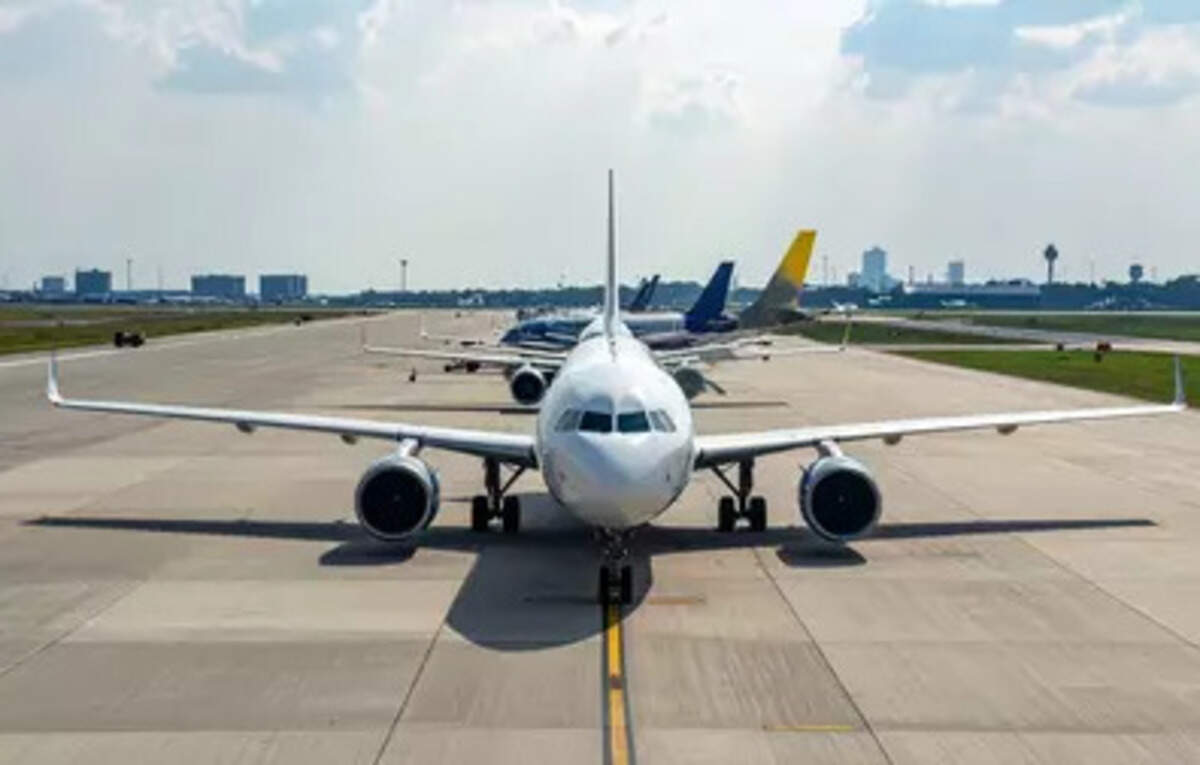India-Pakistan Tensions Lead to Stricter Airport Security and Air Traffic Impact

Heightened tensions between India and Pakistan have led to the shutdown of 24 airports, significantly disrupting domestic air traffic. This has resulted in a decrease in daily flights and has affected numerous routes, especially in northern and western India. Passengers are advised to allocate extra time for check-in because of enhanced security measures. Despite these disruptions, international traffic remains relatively stable.
According to industry data, the average daily domestic flights have dropped from 3,265 in April to 2,907 as of May 8. Approximately 670 airline routes are projected to be affected between May 9-10, encompassing 334 incoming and 336 outgoing flights across the 24 closed airports, as per FlightRadar24 data. The most affected airports are in Srinagar, Chandigarh, Amritsar, Jammu, and Leh. Other airports experiencing impact include Patiala, Bhuntar, Pathankot, Bikaner, Jaisalmer, Mundra, Keshod, and Rajkot.
Arrivals are also facing delays in major cities such as Delhi, Mumbai, Bengaluru, Hyderabad, Kolkata, and Chennai. Departures from these airports are experiencing even greater disruption, according to FlightRadar24 data. However, the Indira Gandhi International Airport in Delhi remains open and operational. The Delhi International Airport Ltd (DIAL) has stated that while operations are normal, some flights are affected due to changing airspace conditions and heightened security. DIAL is collaborating with stakeholders to minimize any inconvenience.
IndiGo, anticipating up to 500 flight cancellations, has emphasized the paramount importance of passenger safety and is committed to assisting travelers. The grounding of civil flights is particularly impacting connectivity in northern and western India, and travelers are strongly encouraged to verify with their airlines before heading to the airport.
The Bureau of Civil Aviation Security (BCAS) has mandated that all airlines and airports nationwide strengthen their security protocols. Passengers are now advised to arrive earlier for check-in and boarding due to enhanced security measures at airports. Check-in counters will close 75 minutes before departure, as announced by Air India.
In response to these heightened security concerns, airport security has been increased across India. The Bureau of Civil Aviation Security (BCAS) has ordered strict checks and additional safety measures. These measures include thorough screening of all passengers via mandatory Secondary Ladder Point Checks (SLPC) just before boarding. Visitor entry into terminal buildings has been temporarily banned, with only valid ticket holders allowed inside. Approximately 27 Indian airports across the North, West, and Central regions have been temporarily shut down until May 10, affecting over 430 flights.
Airlines like Air India have rerouted or cancelled flights, offering rebooking or refunds to affected passengers. They are also assisting passengers with alternate travel arrangements. International carriers, including United Airlines and American Airlines, have cancelled scheduled flights to Delhi due to the escalating tensions, with plans to reassess operations based on the evolving situation.
Both the Directorate General of Civil Aviation (DGCA) and the Airports Authority of India (AAI) are closely monitoring the situation and collaborating with security forces to ensure smooth operations. Travelers are advised to check flight status, stay updated through airline websites and official airport channels, arrive at least 3 hours before departure, carry valid ID, and cooperate with security staff.












